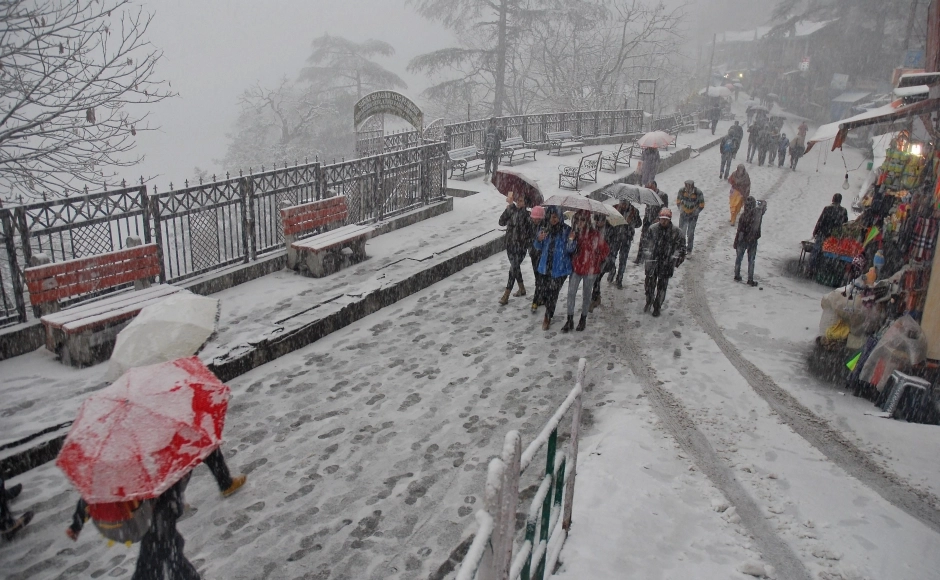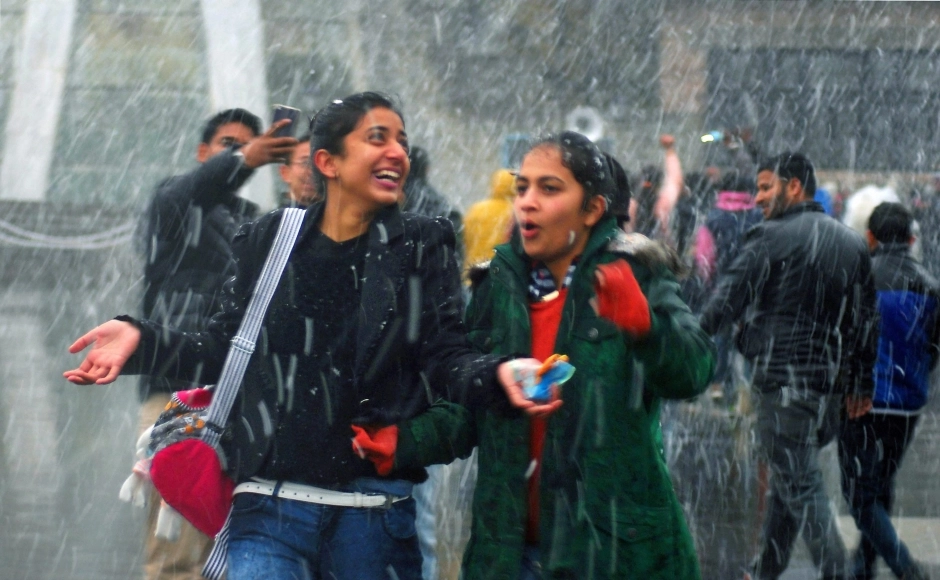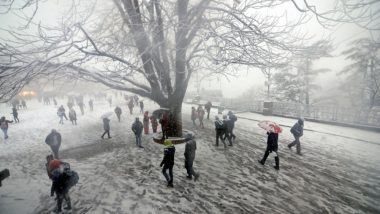New Delhi, January 24: Parts of Northern India have been reeling under an intense cold wave since Monday. High-altitude areas of Jammu region, Himachal Pradesh, Uttarakhand have been engulfed in heavy snowfall, turning the tourist destinations more picturesque. It is after much delay that Shimla, the famous tourist destination has experienced the season's first snowfall on Monday. As per reports, Jammu and Kashmir, Himachal Pradesh, Uttarakhand, Haryana, Chandigarh and western Uttar Pradesh may get rain on Tuesday and Wednesday. Scattered rain is expected in north Rajasthan, Punjab and eastern Uttar Pradesh due to a western disturbance.
High altitude areas of Uttarakhand also received heavy snowfall. The Gangotri temple in Uttarakhand's Uttarkashi district received fresh snowfall in the early morning hours on Tuesday while Todh valley of Lahaul-Spiti district too received fresh snowfall. Places near to Shimla like Kufri and Narkanda have also been experiencing snowfall.

Soon after snowfall was reported, tourists flocked to Shimla and Uttarakhand as the region saw a low of 2.7 degrees Celsius. The day's temperature in Shimla stayed at 12.2 degrees. The snowy landscape in Shimla would stay for one-two days, an official of the Met Office said. Shimla’s majestic Dhauladhar ranges in the Kangra valley got a fresh blanket of snow cover while Kalpa, some 250 km from the state capital and Keylong in Lahaul and Spiti district also experienced snow.
Himachal Pradesh: Todh valley of Lahaul-Spiti district received fresh snowfall pic.twitter.com/0NXYKFXayX
— ANI (@ANI) January 24, 2018
Gangotri temple in Uttarakhand's Uttarkashi district received fresh snowfall in the early morning hours. pic.twitter.com/5l258s0y68
— ANI (@ANI) January 24, 2018
According to details by IMD officials, mercury levels in Maharashtra are believed to drop over the next two days owing to the 'westerly disturbances'. The maximum temperature in Mumbai came down from 32 degrees Celsius to 28 degrees Celsius as recorded at 5 pm on Tuesday. "The westerly disturbances have become prominent in North India followed by northerly winds, which will bring down the temperature across coastal and central Maharashtra further," K S Hosalikar, deputy director general (western region) IMD, Mumbai said.

The official further added saying that the systems developed over the Caspian Sea have brought more moisture over Afghanistan, South Pakistan and Central parts of India. The phenomenon, known as 'westerly disturbances' would bring some showers and snowfall in northern India and mountains respectively.
(The above story first appeared on LatestLY on Jan 24, 2018 10:58 AM IST. For more news and updates on politics, world, sports, entertainment and lifestyle, log on to our website latestly.com).













 Quickly
Quickly


